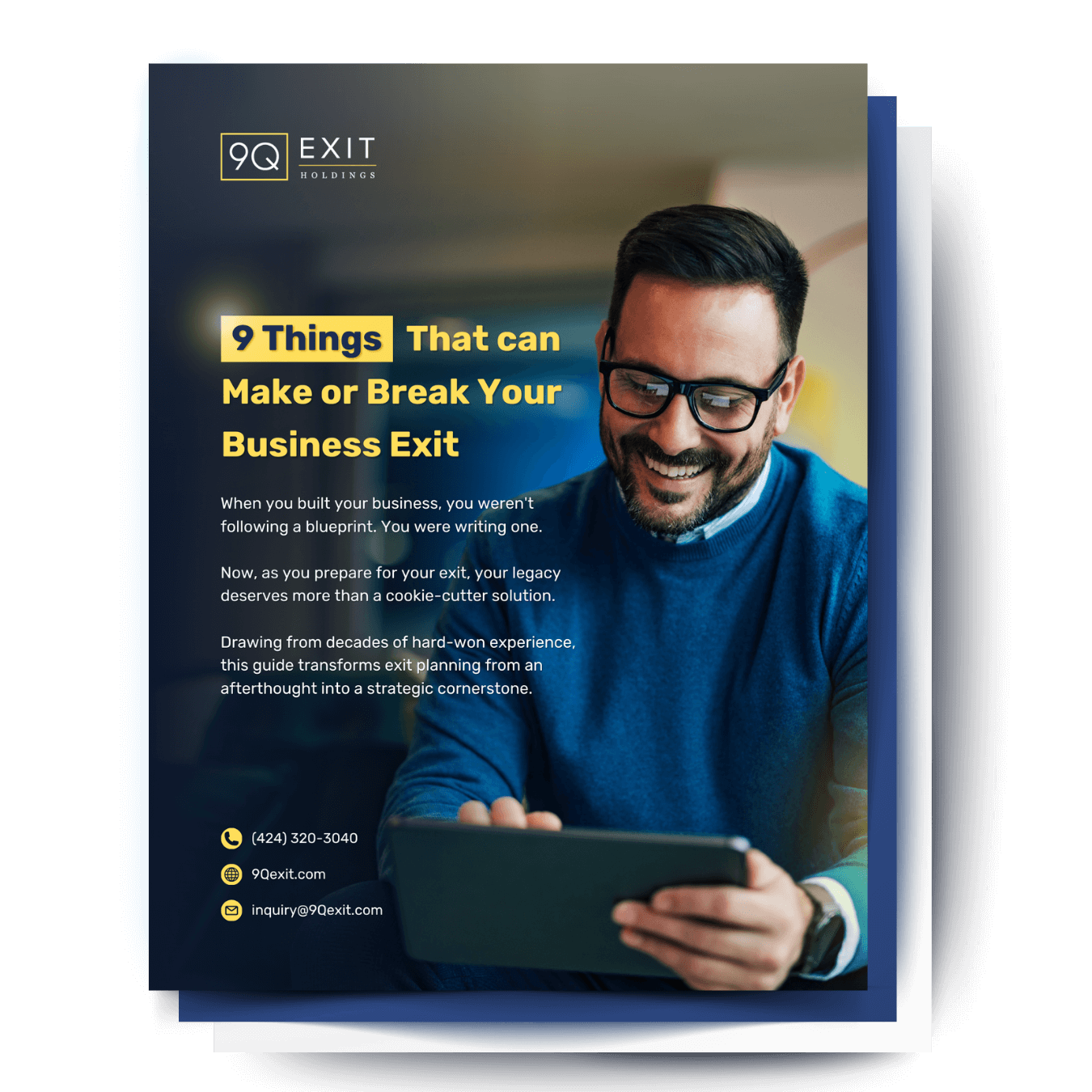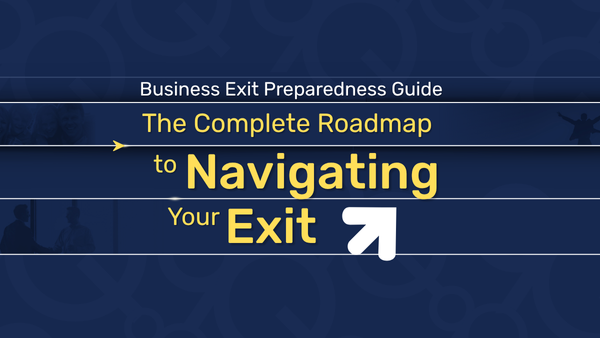Most business exits take years to plan. But not all exits happen on your timeline.
A family emergency, health crisis, or personal turning point can force even the most disciplined founder into a sudden decision:
I need to step away from the business. And I need to do it now.
At 9Q Exit Holdings, we’ve seen this moment up close. Owners facing personal emergencies don’t just need a buyer—they need speed, discretion, and experienced guidance.
This isn’t about “scaling to exit.” It’s about protecting value when time and energy are no longer on your side. And done right, it’s still possible to exit well—even under pressure.
When Urgency Collides with Ownership

Most founders are central to their business. Even if systems are in place, their role in strategy, relationships, or leadership can’t be removed overnight.
That makes emergency exits especially complex. There’s no time for a two-year succession plan. No luxury of waiting for market timing. But there is a path forward—if you move quickly and engage the right expertise.

What to Do First: Stabilize, Don’t Scramble
The first step in an urgent exit isn’t listing the business—it’s stabilizing it. That means putting temporary scaffolding in place so the business can operate while ownership shifts.
Key moves include:
- Appointing interim leadership (internally or externally)
- Communicating with essential team members under NDA
- Protecting customer continuity with account transition plans
- Locking down access to key systems and financials
This isn’t about fixing everything. It’s about showing a buyer the business can survive without daily founder input—because that’s exactly what they’re buying into.

The Second Step: Engage Advisors Who Move Fast
In emergency exits, speed is only helpful if paired with precision. Selling quickly is possible—but not if you’re figuring it out alone.
You’ll need a team that includes:
- An M&A advisor experienced in urgent transactions
- A lawyer who understands transitional risk
- A financial professional to package the deal cleanly
At 9Q, we’ve acquired businesses on tight timelines because owners were supported by the right people. Without this, most urgent exits stall—or leave significant value behind.

Third: Choose the Right Buyer Pool
Not all buyers move at the same pace. Strategic acquirers, institutional investors, or corporate buyers often take 6–12 months—or more. In an emergency, that’s not viable.
You need buyers who:
- Understand small business dynamics
- Can perform rapid diligence
- Are ready to operate day one
Some experienced acquirers—like 9Q—specialize in deals where the owner needs to step away quickly and cleanly. We evaluate businesses based on stability, transferability, and core profit—not personal brand or future growth plans.

What Matters Most in an Emergency Exit
If you’re navigating a life emergency, here’s what protects your exit:
Clean books. Financial transparency accelerates everything.
Simple operations. The less custom or founder-dependent, the better.
Predictable cash flow. Buyers want to know what’s coming in—even if you’re out.
Documentation. Systems, SOPs, contracts, and org charts become assets when you’re not in the room.
Decision-making. Delegated authority builds buyer confidence and smooths the transition.
You don’t need perfection. You need structure. And you need experts who can assess, package, and present your business under pressure.
Exiting on Your Terms—Even If You Didn’t Choose the Timing

Emergencies don’t wait. But that doesn’t mean your exit has to be rushed, reactive, or undervalued.
At 9Q, we’ve worked with founders whose lives changed overnight—and helped them exit with clarity, confidence, and care.
You’ve built something valuable. And even in the most difficult moments, there’s a way to preserve what matters, protect your legacy, and walk away with peace of mind.
You don’t have to do it alone. You just have to start with the right people.
Sources:
Research on forced exits, transitional ownership, and emergency succession planning appears in the Harvard Business Review, Journal of Business Venturing, Strategic Entrepreneurship Journal, and Family Business Review.
Industry case studies and M&A reports confirm that businesses with financial transparency, leadership depth, and transferable systems are more likely to close deals quickly and at higher value, even under personal or market pressure.
This article was prepared based on academic research, 9Q’s acquisition experience, and direct advisory work with owners exiting due to unforeseen life events.







